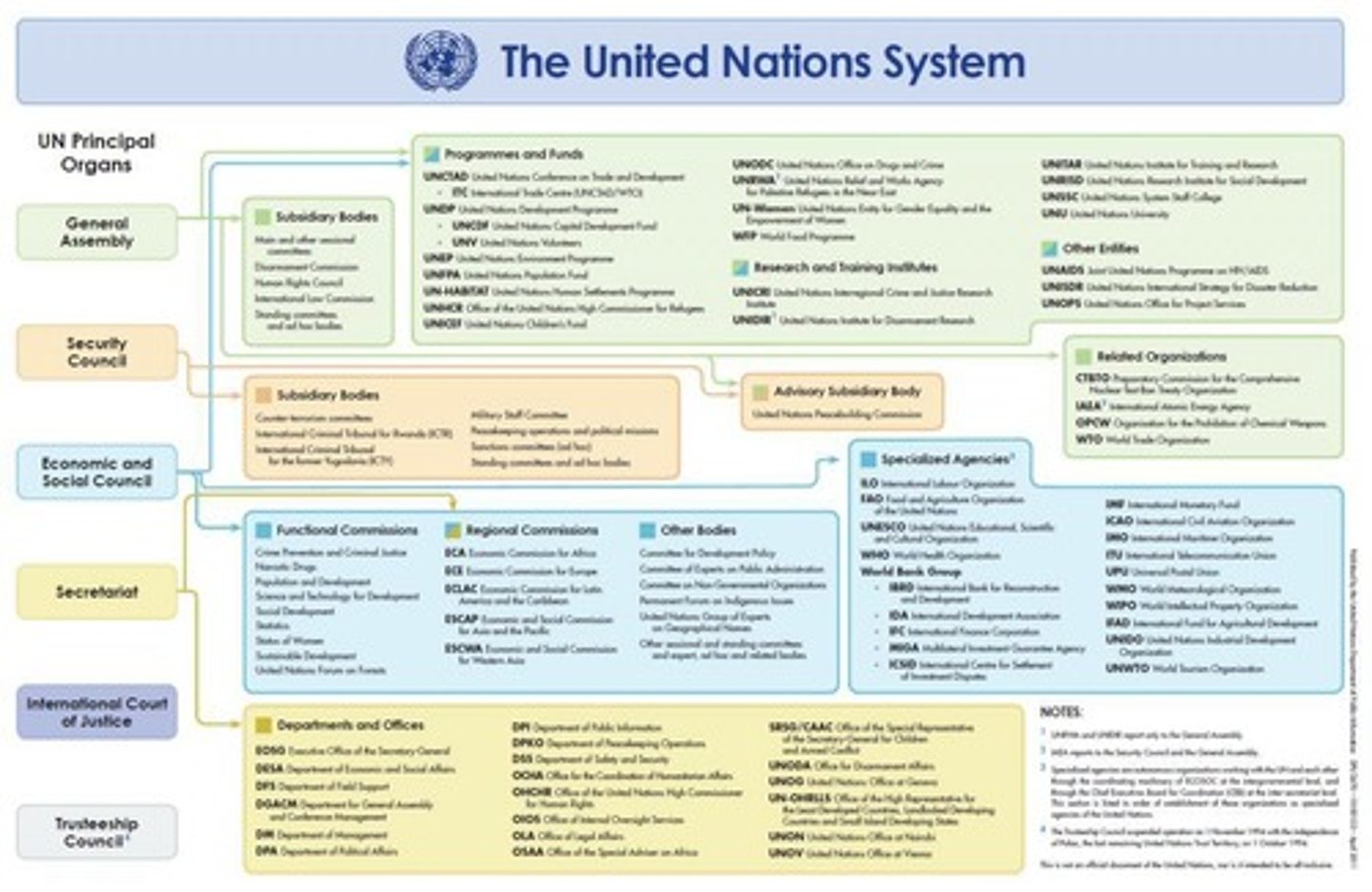Topic 3:Unilateralism, Multilateralism & International Institutions
1/22
There's no tags or description
Looks like no tags are added yet.
Name | Mastery | Learn | Test | Matching | Spaced | Call with Kai |
|---|
No analytics yet
Send a link to your students to track their progress
23 Terms
Unilateralism
Action taken by a single state.
Multilateralism
Coordination among 3 or more states in pursuit of a shared goal.
International institutions
Anything that shapes, constrains, guides and/or patterns the behavior of states.
Inter-Governmental Organizations (IGOs)
Consist of 3 or more states with activities in several states.
Formal multilateralism
United Nations (UN)
A central component of world politics and governance with 193 members.

General Assembly
The international 'hub' that sets the global agenda.
Security Council
Core of the global security system with 15 members, 5 are permanent (P-5).
Economic and Social Council (ECOSOC)
Central forum for economic and social issues and development policy with 54 members.
Secretariat
The UN's administration headed by the Secretary-General.
International Court of Justice (ICJ)
Also known as the 'World Court'.
International law
The body of principles, customs and rules regulating interactions among and between states, IOs, individuals and in more limited cases, multilateral organizations.
Sources of International Law
Includes treaties, customary law, and soft law.
Nicaragua-US example
An example used in the debate regarding whether international law is 'law'.
Constraints on the United Nations
Includes contradictions with state sovereignty, competing interests in world politics, lack of sufficient funding, and ongoing and new transnational issues.
International law & Domestic law
International law exists in a condition of anarchy and lacks centralized, consistent enforcement.
Why cooperate?
Increasing state contact and interdependence, transnational issues, increase legitimacy of actions in world affairs, and increase leverage for smaller-power states.
Specialized Agencies of the UN
Includes WHO, ILO, UNESCO, FAO, etc.
Funds & Programmes of the UN
Includes UNICEF, UNDP, UNHCR, WFO, UN Women, UNEP, etc.
Regional IGOs in Europe
Includes EU and Organization for Security Cooperation in Europe (OSCE).
Regional IGOs in Africa
Includes AU, Economic Community of West African States (ECOWAS), Southern African Development Community (SADC), and East African Community (EAC).
Regional IGOs in The Americas
Includes Organization of American States (OAS) and MERCOSUR.
Regional IGOs in Asia
Includes Association of Southeast Asian Nations (ASEAN), Asia-Pacific Economic Cooperation (APEC), and Shanghai Cooperation Organization (SCO).
Regional IGOs in The Middle East
Includes Arab League and Gulf Cooperation Council.